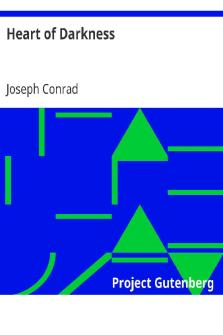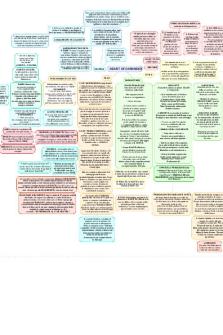Heart of darkness PDF

| Title | Heart of darkness |
|---|---|
| Course | Langue anglaise écrite 1 |
| Institution | Université Bordeaux-Montaigne |
| Pages | 4 |
| File Size | 89.1 KB |
| File Type | |
| Total Downloads | 106 |
| Total Views | 155 |
Summary
Heart of Darkness. ...
Description
mercredi 5 octobre 2016
Heart of Darkness by Joseph Conrad A NOVELLA : Story longer and more complex than a short story but shorter than a novel. Adapted in 1979 as Apocalypse Now and moved to Vietnam during the War. Conrad : born in Poland in 1857 under Russian domination. At 16, went to France to work as a mariner. He started to learn English in his early twenties when he moved from the french to the english merchant marine. British citizen in 1886. He traveled a lot for his job. Travels India, Australia, Far East… 1890 : Belgian Congo He had health issues so he had to stop his career in the marine and he started writing instance. He published 31 books in which : Heart of Darkness, Lord Jim, Typhoon = deals with experience at sea. Also published a memoir, Nostromo (latin revolution) He published Heart of Darkness as a series in parts in a magazine in 1899 before it was published as a book in 1902. Each week, the readers know what the sequel is. Experience of Africa Traveling abroad the Congo River had been a childhood dream for him. He was struck by the dark atmosphere surrounding the shipping companies. He came back with this idea of a men who explored the riches of Africa which were successful but destroyed physically and mentally. — Themes of solitude and individualism are central to the novella as the themes of imperialism and greed. Also focuses on racial prejudice and violence of human nature. Symbolism Richness of its symbolism. Echoing thematic content : — the light imagery : quite telling in this respect especially in the first of the three chapters. Opposition between light and darkness underlines the possible fallacy of «!the white man’s burden!», that is to say the light of civilization white men think they should bring to the colonized. The white man’s burden is a reference to a poem = British thought and imperialism. Title refers to the depths of the African continent + evil that lyes at the heart of every human being + Marlow’s own interior journey into the depths of the self. So highly symbolic title. Complexity of its narrative technique Indirect narration — information in the novel is presented from different points of view. Bits of pieces. Conrad is the master of indirect narration.
1
mercredi 5 octobre 2016 Frame narrative «!tale within a tale technique!» The first narrator remains anonymous and recounts what the second narrator, Marlow, who also appears in Lord Jim, say he has experience. So the first narrator relays Marlow’s adventures as they are told onboard a ship anchored on the Thames. Several stories in one : that of Marlow himself discovering Africa and the evils of colonization, but also that of Kurtz (european station master) who has forced the natives to adore him like a god. The tale is a meandering one resembling the difficult progression of the protagonist up the river. Marlow warns his audience at the beginning that his story will be imprecise and difficult to tell. Style = full of many similes, contrasts and echoes. The prose itself is very rich. Verbose and repetitive style A critique of language. Language = a means to exercice power and a means to hide the shallowness of men. Speech One specific device used to dramatize language is through the problematizing of the way speech is reported. There are five types of reported speech. — “How can I?” : an instance of direct speech reporting someone’s speech without comment except in the reporting verb which can bear some degree of subjectivity. The speech is reported using quotation marks. — How can I? This is free direct speech; the words are reported as they are uttered (direct) but no punctuation is used (free). — I asked how I could. This is indirect speech: discourse is reported in the words of the narrator, without any quotation marks. — How could I? This is free indirect speech: the words are reported almost directly, only the tenses are transposed here in the past tense. — I wondered about my plight. This is narrated speech—discourse is not reported but summarized. The reader is left to imagine the words that were actually uttered. Marlow : a story-teller or narrator ? Many pauses in Marlow’s telling, many changes in tone, he stops and metalinguistic interventions : Any use of language about language, as for instance in glosses, definitions, or arguments about the usage or meaning of words. Linguistics sometimes describes itself as a metalanguage because it is a ‘language’ about language; and so on the same assumption criticism is a metalanguage about literature. (...) Roman Jakobson in his listing of linguistic functions describes the ‘metalingual’ (or metalinguistic) function as that by which speakers check that they understand one another. In a wider sense, literary works often have a metalinguistic aspect in which they highlight uses of language: a very clear case of this is Shaw’s Pygmalion (1913). Metafiction Fiction about fiction; or more especially a kind of fiction that openly comments on its own fictional status. In a weak sense, many modern novels about novelists having problems writing their novels may be called metafictional in so far as they discuss the nature of fiction; but the term is normally used for works that involve a significant degree of self-consciousness about themselves as fictions, in ways that go beyond occasional apologetic addresses to the reader. The most
2
mercredi 5 octobre 2016 celebrated case is Sterne’s Tristram Shandy (1760–67), which makes a continuous joke of its own digressive form. A notable modern example is John Fowles’s The French Lieutenant’s Woman (1969), in which Fowles interrupts the narrative to explain his procedures, and offers the reader alternative endings. (Ibid.)
From realism to modernism Realism = mode of writing prevalent in the 18th and 19th centuries. Wanted get away from realism to go to modernism. Modernism = mode of writing which emerged at the very beginning of the 20th century. — Conrad’s interest style made him a herald of Modernism, when for the first time, language ceases to be a mere medium of communication and instead itself becomes an object of interrogation. Language mis en question. Issue of failure and issue of communication Inability of the narrator to convey his story properly. You don’t know what exactly happened to Kurtz bc Marlow isn’t able to tell us. Descriptive language vs. imprecise speech. Unstable metaphors, they don’t seem compatible. Impressionist technique. Marlow protrays himself as verbally deficient while Kurtz is very presented from the beginning as a master of language. Conrad frustrates the the 19th centuries reader by not disclosing what happened to Kurtz. — undermining of realistic verisimilitude — no resolution Kurtz’s famous cry ‘The horror ! the horror !!» uttered shortly before his death : expressive power but no precise meaning Heart of Darkness = central semantic void. A critique of civilization and colonialism Scepticism of language = scepticism of civilization and critique of colonialism. «!The Company = the white people who exploit the riches of Africa.!» Clear link between literature and society : need to radically change realistic modes of narration to represent the negative consequences brought by the expansion of industrial capitalism and imperialism. He had to find new ways of writing. Ambivalent look on colonialism He shows the evils of the conquest but from the point of view of the imperialist : overall message of the book remains unclear — racism is both unmasked and reproduced. Due to its stylists and thematic ambiguity cannot provide a definite condemnation of colonialism. Edward said Conrad is both similar and different from other contemporary colonial writers. Marlow tells his story to a group of business = way of Conrad to emphasize the fact that in the last years of the 19th century the empire had become intricately linked to capitalism. Marlow’s = an imperialist’s worldview, he is an employee of the Company he holds power over the narrative.
3
mercredi 5 octobre 2016 The “whole point of what Kurtz and Marlow talk about is in fact imperial mastery, white Europeans over black Africans, and their ivory, civilization over the primitive dark continent” (Said)
And yet… “(despite) their European names and mannerisms, Conrad’s narrators are not average unreflecting witnesses of European imperialism. They do not simply accept what goes on in the name of the imperial idea: they think about it a lot, they worry about it, they are actually quite anxious about whether they can make it seem like a routine thing. But it never is. Conrad’s way of demonstrating this discrepancy between the orthodox and his own views of empire is to keep drawing attention to how ideas and values are constructed (and deconstructed) through dislocations in the narrators language. [...] By accentuating the discrepancy between the official “idea” of empire and the remarkable disorienting actuality of Africa, Marlow unsettled the reader’s sense not only of the very idea of empire, but of something more basic, reality itself.” (Said)
4...
Similar Free PDFs

Heart of Darkness Reading
- 42 Pages

Heart of darkness
- 4 Pages

Heart of darkness español
- 121 Pages

Heart-of-Darkness - books
- 88 Pages

Heart of darkness summary
- 8 Pages

Heart of Darkness
- 34 Pages

Heart of Darkness
- 10 Pages

Realism in Heart of Darkness
- 4 Pages

Heart of darkness 001 part 1
- 37 Pages

Centuries of Darkness
- 13 Pages

alternative of your heart
- 7 Pages

Electrical activity of heart
- 13 Pages
Popular Institutions
- Tinajero National High School - Annex
- Politeknik Caltex Riau
- Yokohama City University
- SGT University
- University of Al-Qadisiyah
- Divine Word College of Vigan
- Techniek College Rotterdam
- Universidade de Santiago
- Universiti Teknologi MARA Cawangan Johor Kampus Pasir Gudang
- Poltekkes Kemenkes Yogyakarta
- Baguio City National High School
- Colegio san marcos
- preparatoria uno
- Centro de Bachillerato Tecnológico Industrial y de Servicios No. 107
- Dalian Maritime University
- Quang Trung Secondary School
- Colegio Tecnológico en Informática
- Corporación Regional de Educación Superior
- Grupo CEDVA
- Dar Al Uloom University
- Centro de Estudios Preuniversitarios de la Universidad Nacional de Ingeniería
- 上智大学
- Aakash International School, Nuna Majara
- San Felipe Neri Catholic School
- Kang Chiao International School - New Taipei City
- Misamis Occidental National High School
- Institución Educativa Escuela Normal Juan Ladrilleros
- Kolehiyo ng Pantukan
- Batanes State College
- Instituto Continental
- Sekolah Menengah Kejuruan Kesehatan Kaltara (Tarakan)
- Colegio de La Inmaculada Concepcion - Cebu



